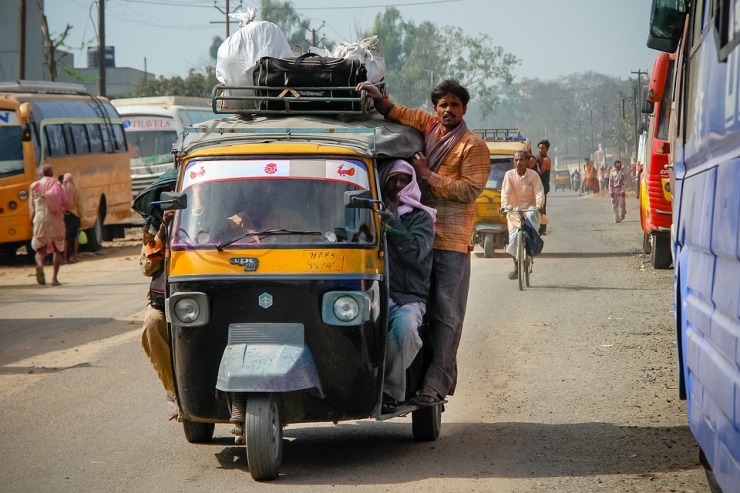
Violence erupted on Sunday, November 24, in Sambhal, Uttar Pradesh, as protests against a court-ordered survey of the historic Shahi Jama Masjid turned deadly, leaving five people dead and dozens injured, including 36 police personnel.
The clashes broke out when authorities attempted to conduct a second survey of the 16th century Mughal-era Mosque, which has become the centre of a contentious religious dispute. The violence prompted authorities to suspend internet services and close schools in the district.
Three of the deceased were identified as Naeem, Bilal, and Noman, all aged about 25. Two more victims, Mohd Kaif and Mohd Ayan, died during treatment in Moradabad late on Sunday night. Divisional Commissioner Aunjaneya Kumar Singh reported that shots were fired by miscreants, with the PRO of the superintendent of police suffering a gunshot to the leg and the circle officer being hit by pellets. A constable suffered a serious head injury while the deputy collector fractured his leg.
The incident occurred during a follow-up survey of the mosque, which was constructed during Emperor Babur's reign between 1526 and 1530. The initial survey was conducted on November 19 following a petition claiming the mosque was built on the site of a Hindu temple dedicated to Lord Kalki.
Zafar Ali, president of the Shahi Jama Masjid management committee, blamed local authorities for the outbreak of violence. Before being detained by police on Monday, Ali claimed at a press conference that confusion arose when Sub-Divisional Magistrate Vandana Mishra insisted on draining water from the ablution tank, despite suggestions to measure its depth with a stick. “Draining the water led to a confusion among those gathered outside, who believed excavation was taking place and it provoked the crowd,” Ali stated.
The violence escalated as protesters allegedly set vehicles ablaze and pelted stones at police, who responded with tear gas and baton charges. Authorities have since arrested at least 25 people and filed cases against approximately 2,500 individuals, including local Member of Parliament Zia-ur-Rehman Barq of the Samajwadi Party.
The incident has sparked political controversy, with opposition leaders criticising the state’s BJP government. Congress MP Rahul Gandhi called the state government’s approach “extremely unfortunate” and said their “biased and hasty attitude” had aggravated tensions. Former Chief Minister Akhilesh Yadav urged the Supreme Court to “immediately take cognizance of the conspiracy to spread tension in the name of the survey.”
The BJP defended the action, with party spokesperson Nalin Kohli stating, “Nobody has any right to break the law. If a court has passed an order, it will be implemented.”
The dispute has reignited debates about the Places of Worship Act 1991, which maintains that religious sites must retain the same character they held at India’s independence in 1947. Critics argue the survey violates this act, while supporters contend it is necessary to uncover historical truths.
The tension in Sambhal has since spread to nearby areas, with related violence erupting in Uttar Pradesh’s Etah district. Officials reported clashes over a separate property dispute involving claims of Waqf Board ownership, leading to arrests and additional security measures.
Authorities have banned outsiders, social organisations, and public representatives from entering Sambhal without official permission until November 30. The order, issued under provisions of the Bharatiya Nyaya Sanhita (BNS), carries penalties under Section 223 for any violations. Seven First Information Reports (FIRs) have been registered in two police stations, including one against Sambhal MP Zia-ur-Rehman Barq for allegedly inciting violence.
The Shahi Jama Masjid, built under the supervision of Hindu Beg Qucin, stands as one of three major mosques constructed during Mughal Emperor Babur’s reign. Sambhal holds particular significance in Hindu tradition as the purported birthplace of Kalki, considered the tenth avatar of Vishnu.
The incident has drawn comparisons to historical religious disputes in India, particularly the Babri Masjid controversy in Ayodhya, which led to widespread communal violence in the 1990s.




